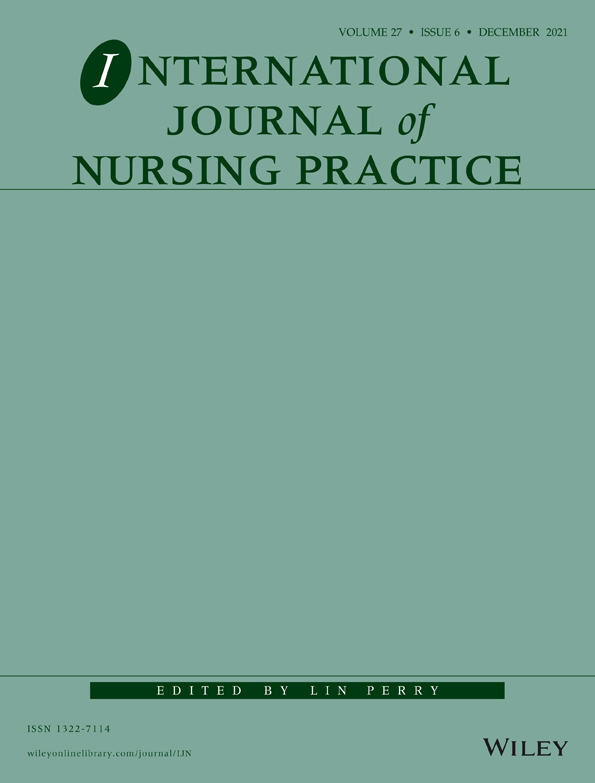Creating a practice-related culture for research: A qualitative study of engaging clinical nurses in utilization of developmental and research-based knowledge in hospital settings
Abstract
Aim
To describe academic nurses' experiences engaging clinical nurses in utilizing and implementing developmental and research-based knowledge in hospital settings.
Methods
This study used a descriptive qualitative design. Fourteen academic nurses at Masters or PhD level from three different regions of Denmark participated in the study, relating their successful experiences engaging clinical nurses in utilizing and implementing developmental and research-based knowledge. Data were collected in February 2020 through qualitative semi-structured interviews and analysed using a qualitative manifest content analysis.
Results
The main theme revealed was that academic nurses were ‘Working towards creating a practice-related culture for research’ to engage clinical nurses. This was supported by three subthemes: ‘Focusing on evidence-based practice knowledge’, ‘Facilitating knowledge through a pedagogical approach’ and ‘Aiming for future changes’.
Conclusions
The academic nurses experienced their engagement of clinical nurses and the subsequent change of practice in patient care and nurses' workflows in the department settings, as successful due to the academic nurses' pedagogical actions to educate clinical nurses and due to the academic nurses' practice-related approach to research and implementation.
Summary statement
What is already known about this topic?
- Nurses who utilize research and work with evidence-based practice are more satisfied with their work, have better patient outcomes and become advocates for patients as they focus on improving the quality of patient care.
- Engaging nurses in nursing research can be a difficult task due to barriers to research utilization. However, most nurses have positive attitudes towards research.
- Knowledge is needed about how nurses have been successfully engaged in utilizing and implementing developmental and research-based knowledge.
What this paper adds?
- Academic nurses have successfully engaged clinical nurses in research and development by creating a practice-related research culture.
- Engaging clinical nurses in research and development can be improved by focusing on evidence-based knowledge to solve practical problems in nursing.
- Facilitating knowledge of research through pedagogical actions of education and involvement is often more important than the academic knowledge itself.
The implications of this paper:
- Engaging clinical nurses in research and development depends upon making practice-related research culture a natural part of daily nursing practice.
- Dual management, consisting of two head nurses—one for practice and one for research—should be established to improve academic nurses' authority to implement changes in nursing practice.
CONFLICT OF INTEREST
The authors declare no conflict of interest.
Open Research
DATA AVAILABILITY STATEMENT
Author elects to not share data.




